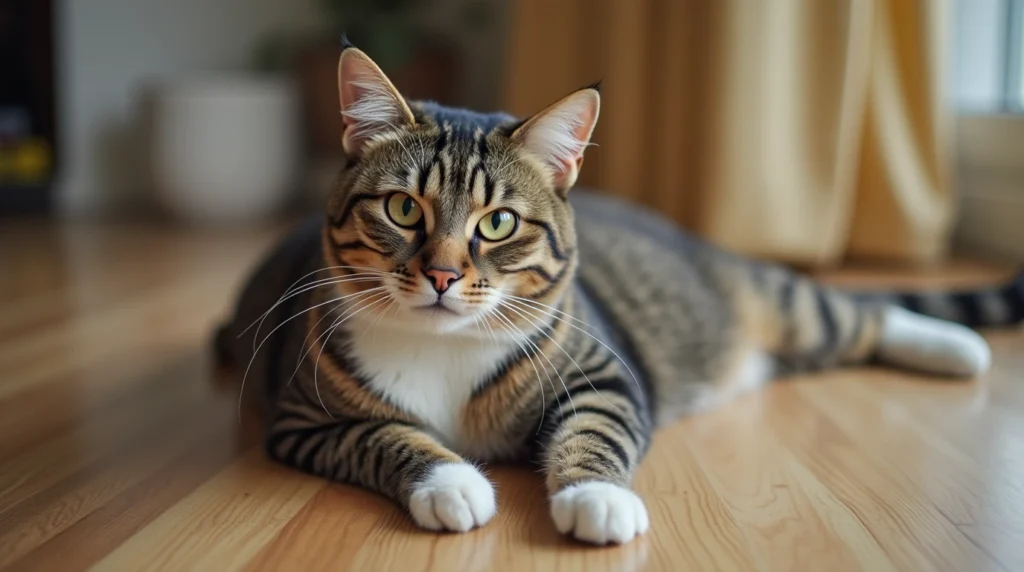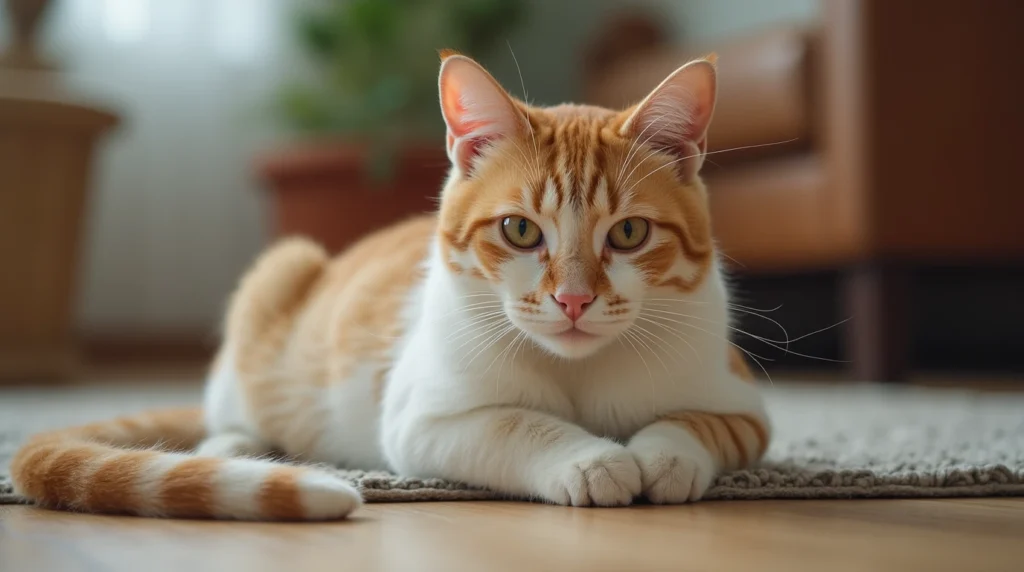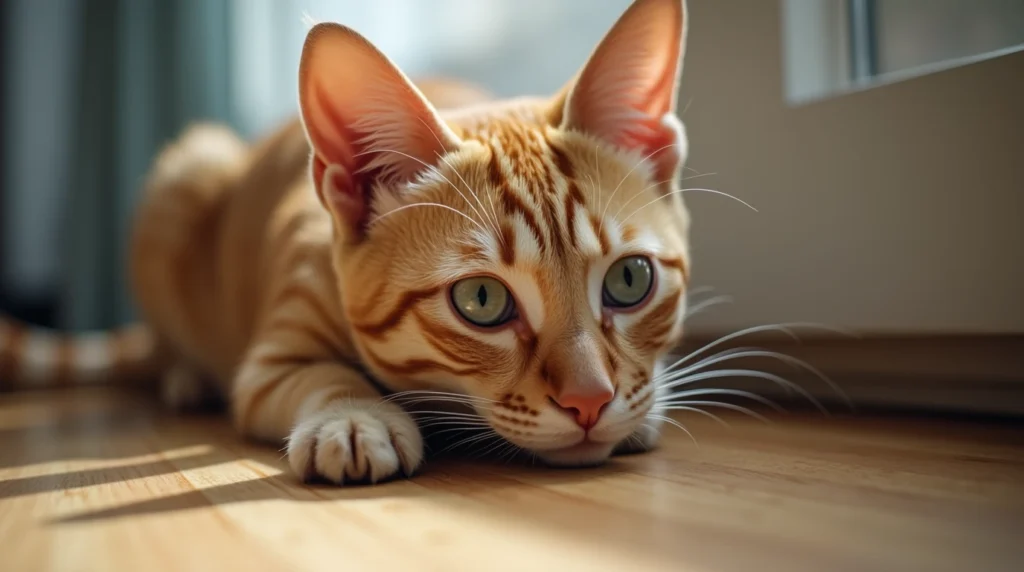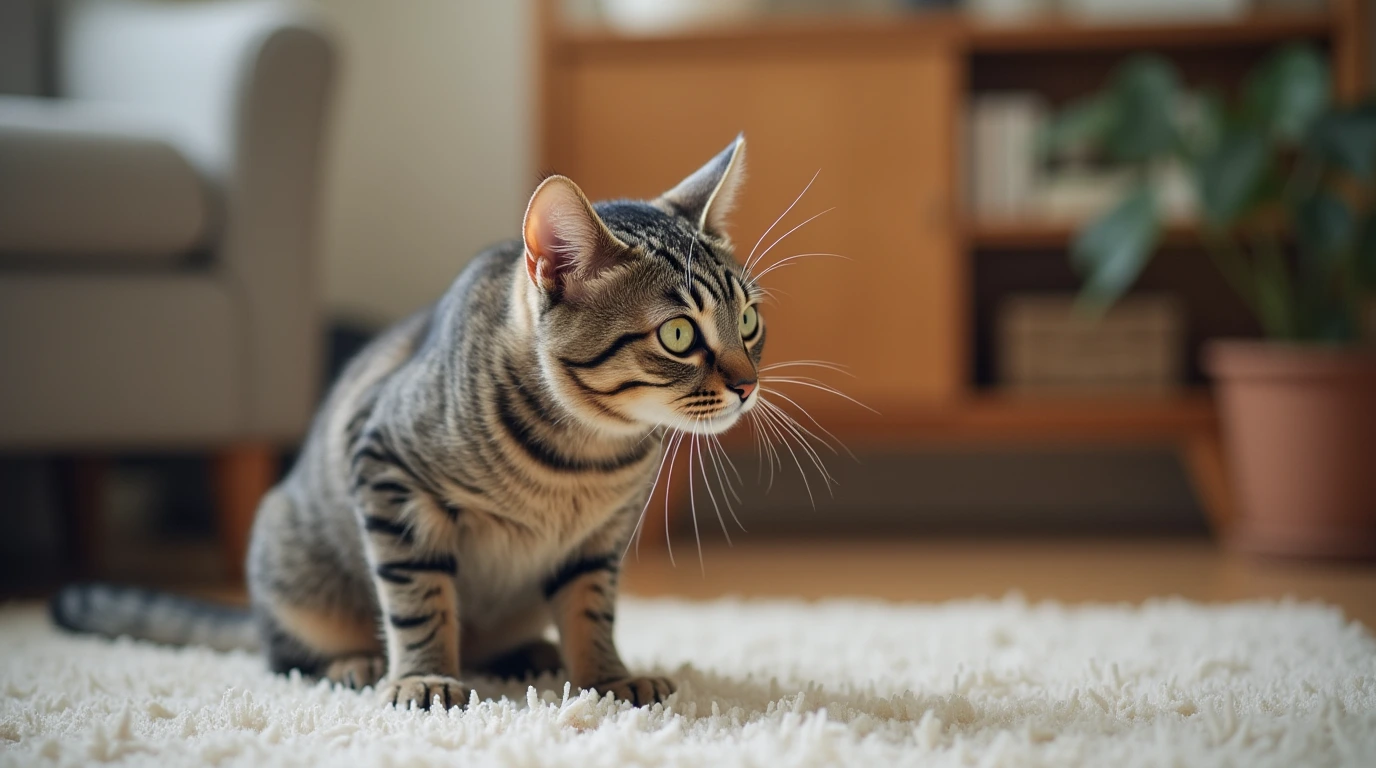Welcoming your male cat back home after a trip to the vet, a stay at a kennel, or a few hours outdoors can be a moment of joy, but it may also bring challenges. You’ve likely noticed that your cat’s behavior can change after being away from home. These changes can range from anxiety and stress to territorial instincts taking over. As a cat owner, understanding and managing these behavioral shifts is crucial in ensuring a smooth and stress-free transition for both you and your feline companion.
This guide will walk you through the common behaviors exhibited by male cats after they return home, how to manage these behaviors, and tips on making their reintegration as smooth as possible. By the end, you’ll have a better understanding of male cat behavior after returning home and how you can help your cat settle back into their familiar environment.
Table of Contents

Why Male Cats Act Differently After Being Away
Cats are creatures of habit, and any disruption to their routine can result in stress. Male cats, in particular, may show a variety of behavioral changes after being separated from home. These changes often stem from a mix of anxiety, territorial instincts, and sometimes even hormonal influences. Here’s why male cats act differently when they return home:
Stress and Anxiety
Male cats can experience stress after being away from home for any reason. Whether it’s a trip to the vet or a stay at a kennel, the unfamiliar environment can be unsettling. Just like humans, cats experience emotional responses to changes in their surroundings. These changes can manifest as anxiety, which in turn affects their behavior. A stressed-out cat may be more vocal, act more withdrawn, or exhibit signs of physical discomfort.
Territorial Instincts – male cat behavior after returning home
Male cats, especially unneutered ones, are highly territorial animals. Returning to a familiar environment after being away can trigger a need to reassert their dominance over their space. You might notice your male cat marking his territory by rubbing against furniture, walls, or even you. This is perfectly natural behavior, as cats feel the need to remind themselves—and everyone around them—that they are back in charge.
Hormonal Fluctuations – male cat behavior after returning home
In unneutered male cats, hormonal changes play a significant role in their behavior. When they return home, the combination of being in a familiar environment and the lingering effects of hormones can lead to changes in their mood and actions. Aggression, restlessness, and a heightened desire to roam are common behaviors linked to hormones.
Signs of Stress and Anxiety in Male Cats
Common Behavioral Signs
- Increased Vocalization: One of the most noticeable signs that your male cat is stressed is increased vocalization. You may notice your cat meowing, yowling, or even growling more than usual. This could be a response to the unfamiliarity of the situation or an expression of anxiety.
- Hiding: Cats often retreat to quiet, isolated spaces when they feel stressed. If your male cat suddenly starts hiding under furniture, in closets, or in other secluded spots, this could be a sign of anxiety.
- Excessive Grooming: Cats groom themselves as a way to soothe their nerves. If your male cat begins over-grooming, especially in certain areas, it could be a response to the stress of being away from home. Excessive licking can also result in bald patches or skin irritation.
- Loss of Appetite: Stress can cause a cat to lose interest in food. If your male cat refuses to eat after returning home, it may be due to the anxiety of being separated or the discomfort from any medical treatments received.
How to Spot Physical Symptoms
While behavioral signs are often the first indicators of stress, physical symptoms can also be present. Keep an eye out for the following signs:
- Dilated Pupils: When cats are anxious or scared, their pupils dilate. If you notice your male cat’s pupils appearing unusually large, it could be a sign that he is stressed or overwhelmed.
- Rapid Breathing: Increased breathing rate or panting may indicate that your cat is feeling stressed, particularly if these symptoms occur after returning home.
- Lethargy: On the other end of the spectrum, some stressed cats may become unusually lethargic. If your male cat is spending more time sleeping than usual, it may be a sign of emotional exhaustion or stress.
When to Seek Veterinary Help
If your male cat continues to show signs of stress beyond a couple of days or if you notice more severe symptoms, it may be time to consult with your veterinarian. Prolonged stress can lead to health problems such as gastrointestinal issues, urinary problems, or behavioral disorders. Your vet can help assess whether your cat’s stress is the result of something more serious, such as an underlying health issue, and provide solutions to help alleviate the anxiety.
Steps to Help Your Male Cat Adjust After Returning Home
Now that you understand the reasons behind your male cat’s behavioral changes, the next step is knowing how to help him adjust to being home. Here are several steps you can take to ease the transition and help your cat feel more comfortable and secure.
Give Them Space and Time
When your male cat first returns home, it’s important to give him time and space to adjust. Cats are independent creatures and may need some alone time to reorient themselves. Here’s what you can do:
- Create a Safe Space: If possible, designate a quiet room or area for your cat where he can retreat and calm down. This space should include familiar items, such as his favorite blanket, toys, and food bowl.
- Avoid Overwhelming Him with Affection: While you may want to shower your cat with love and attention, it’s essential not to overwhelm him right away. Allow your cat to come to you on his own terms. He’ll appreciate the space to acclimate to his surroundings.
Reestablish Routine
Cats thrive on routine, and returning to their familiar schedule can help them feel more at ease. By reestablishing your cat’s usual feeding, play, and sleep schedule, you can help reduce his stress levels.
- Feeding Schedule: Keep your cat’s feeding times consistent. Offering meals at the same time each day will help reinforce the sense of normalcy.
- Playtime: Engage your cat in interactive play sessions, especially with toys he enjoys. This helps him feel mentally stimulated and strengthens the bond between you.
- Sleeping Arrangements: Ensure your cat has access to his favorite spots, such as his bed or a perch by the window, where he can rest and relax.
Provide Comfort and Security
In addition to establishing routines, there are several ways to make your male cat feel more secure after returning home.
- Calming Aids: Consider using calming products such as pheromone diffusers, sprays, or collars. These products release soothing scents that mimic the natural pheromones cats produce, helping them feel more at ease.
- Familiar Scents: Cats rely heavily on scent to feel secure. Make sure your home doesn’t smell drastically different. If your cat is particularly sensitive, you might consider using a blanket or pillow with a familiar scent to comfort him.
Gradual Reintroduction to Other Pets or Family Members
If your male cat was in an unfamiliar environment with other animals, he may feel a little territorial when he returns home. It’s important to gradually reintroduce him to other pets and family members.
- Monitor Interactions: If you have other pets, slowly reintroduce them to your male cat. Watch for signs of aggression or discomfort and separate them if necessary.
- Allow Time for Adjustment: Male cats, especially if they are more territorial, might need time before they feel comfortable with others again. Be patient and allow your cat to move at his own pace.
Special Considerations for Male Cats After Surgery or Vet Visits
If your male cat has been to the vet for a medical procedure, such as neutering or an illness, his behavior may be affected by the stress of surgery, medications, or recovery.
Post-Surgery Behavior
After any surgery, including neutering, your male cat may be a little off. Pain or discomfort can affect his mood and behavior. Here’s what to expect:
- Lethargy and Restlessness: It’s normal for your cat to feel tired or restless after surgery. Ensure he has a comfortable, quiet place to rest while recovering.
- Increased Affection or Withdrawal: Some cats may become more affectionate after surgery, seeking comfort from their owners. Others may retreat and need time alone. Both responses are normal and should be respected.
Medication and Care Instructions
Your vet will likely provide medication and post-operative care instructions. Ensure that you follow these guidelines carefully to help your male cat recover quickly and comfortably. Pay attention to any signs of side effects from medications, and contact your vet if you notice anything unusual.
Monitoring for Complications
Watch for signs of complications, such as infection or abnormal swelling at the surgery site. If you notice anything that doesn’t seem right, reach out to your vet immediately to ensure that your cat is healing properly.
Pros and Cons of Dealing with Male Cat Behavior After Returning Home

Pros: male cat behavior after returning home
- Strengthens the Bond: Helping your male cat adjust to being back home fosters trust and enhances your relationship.
- Improved Well-being: Addressing your cat’s behavioral changes quickly helps minimize stress, leading to a happier and healthier cat.
- Better Understanding of Their Needs: By taking time to understand and respond to your male cat’s needs, you improve his overall well-being and your bond.
Cons: male cat behavior after returning home
- Time and Patience Required: Adjusting your male cat’s behavior after returning home can take time, requiring patience and consistency.
- Potential for Behavioral Issues: If your cat’s stress is not managed, it may lead to long-term behavioral problems.
- Need for Extra Attention: Helping your male cat through this transition requires extra effort and attention, especially if they are particularly stressed.
FAQ – Male Cat Behavior After Returning Home
Why is my male cat acting aggressively after returning home?
It’s natural for male cats to act aggressively after being away, especially if they feel their territory has been threatened. This can be due to stress or an instinct to reassert dominance in their environment.
How long does it take for my male cat to adjust after being away?
The adjustment period can vary from a few hours to a few days, depending on your cat’s temperament and the nature of the separation. Some cats may take longer to feel at ease, so patience is key.
How can I comfort my male cat after a vet visit?
Give your cat space, but provide a calm and familiar environment. Offer favorite foods, soothing scents, and gentle interaction to help him feel secure.
Can male cats get depressed after returning home from a kennel or hospital?
Yes, cats can experience depression or anxiety after being in unfamiliar places. Returning to a familiar environment and reestablishing routines will help them feel secure.

Conclusion/ male cat behavior after returning home
Managing male cat behavior after returning home can be a challenging but rewarding experience. By understanding the causes behind their actions and taking steps to ease their transition, you can help your cat feel more comfortable and secure. With patience, consistency, and the right approach, you and your feline companion will strengthen your bond and enjoy a smoother, stress-free adjustment.
For more tips and resources on cat behavior and care, be sure to visit www.meowrealm.com and share this article with fellow cat lovers!

